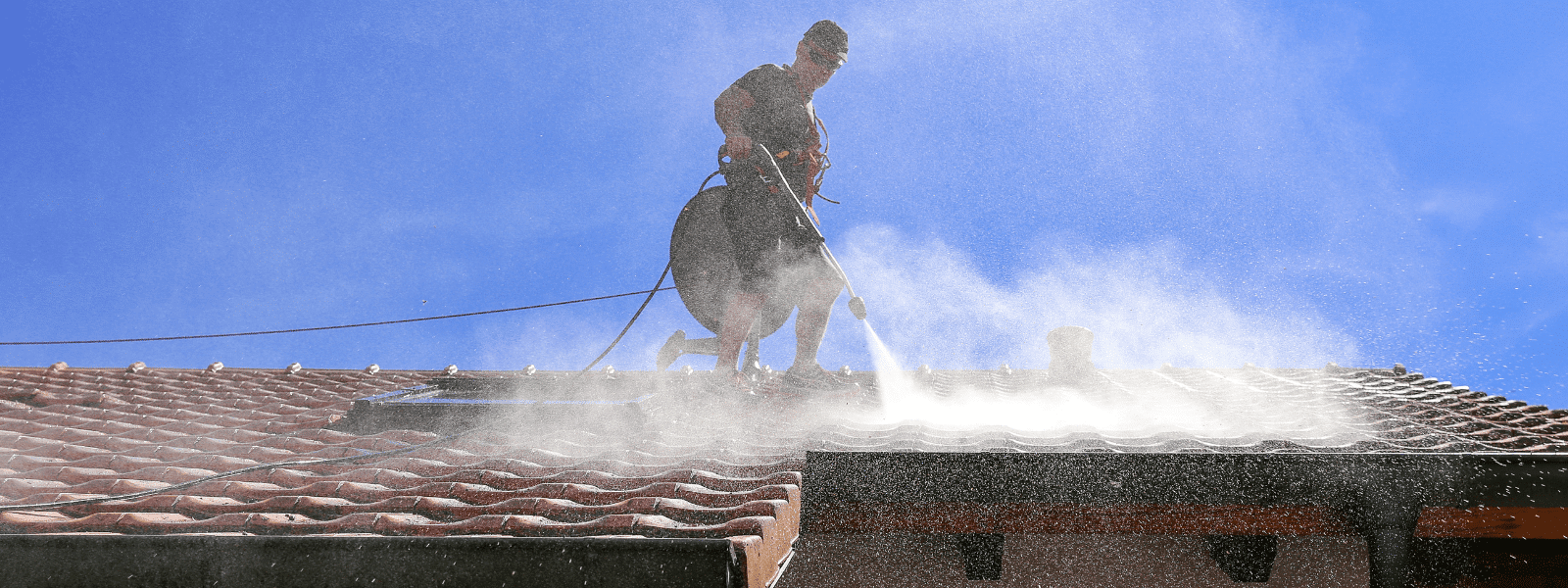The answer is fairly simple: that’s not what it’s for! You need to clean your shingles before you use a soy methyl ester (a.k.a. methyl soyate) treatment, a chemical used to maintain and extend the life of your asphalt-based roofing. To learn more about how this method works to preserve your roof, then read on.
What Is Methyl Soyate?
Methyl soyate is an industrial cleaning solvent known for being eco-friendly. It is often used in oil spills as a shoreline cleaner. For roofing, however, it is not used to clean shingles. Instead, it is used as an oil, sprayed onto the roof, and allowed to soak into the material as a type of treatment.
The benefits of using methyl soyate on your shingles are equivalent to the benefits associated with applying lotion to your skin. When applied correctly, this chemical can help your shingles by…
- Increasing flexibility
- Decreasing brittleness (reducing the chance of cracking)
- Reversing shingle aging
- Extending service life
Cleaning Shingles Before Application
Before applying the methyl soyate compound, you’ll want to make sure you clean shingles to remove any algae or moss that may have grown. Luckily, you likely have access to the necessary cleaning chemicals in your home: laundry-strength bleach and water.
A diluted mixture of bleach consisting of half water and half bleach will need to sit on the surface of your roof for 15-20 minutes. After the time is up, wash the mixture off gently with water. Never use a pressure washer, as doing so will cause damage to your roof.
Once you’ve washed your roof, then the methyl soyate solution can be applied by following the instructions on the packaging. When applied properly, the chemical solution will help rejuvenate your roof and keep it looking ageless for months to come.
If you don’t have a ladder and the proper safety gear, then you’ll want to hire a professional to carry out the cleaning and application process. Generally, this is the safest option, as roof maintenance comes with a high risk of falling.
Looking to Treat a Roof?
Check out Ecolink’s expansive inventory to start browsing our roof treatment and cleaning products today! We go above and beyond to meet our clients’ needs, offering unique custom blends for all of your cleaning jobs. Our products are available in bulk 5 and 55-gallon pails, so you’ll never have to worry about unnecessary packaging waste.
In Need of Assistance?
Our expert representatives are ready to assist! We are a trusted and experienced supplier of high-quality substances. Whatever your question, we’ll work hard to provide superior service and peace of mind. Fill out our easy contact form today and ask for a free quote and consultation!















